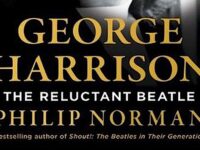When I was told I was being sent a book of interviews with creative, inspirational musicians, I thought it might be something I might dip into now and then, leave on the shelf for a couple months and re-visit when I felt like a bit of inspiration. I was not expecting a book which I could not put down from the moment it arrived.
The difference between Being Here: Conversations on Creating Music (Radhio.org) and so many interviews you see is the complete freedom afforded to those interviewed. Loosely connected by the era they came up in or the fact they have played together, the musicians of New York and its surrounding areas speak freely, openly and with clarity. Radhika provides the vehicle for them to make their voices heard. She gently, unobtrusively, opens the door and allows the information to pour out of them onto the page.
Some of the interviews, I understand, took several attempts, took place over several days and were slow going because the musician needed to find the right responses. Others replied with such enthusiasm and verbosity that Radhika found editing them down to a suitable length a nightmare because it was all relevant. This is clearly Radhika’s gift: She encourages the interviewees here and there with a pertinent question but other than that the pages are just the words of the musicians. They seem to feel an ease with her and understand that she will use only what is good for them and the music. So, they speak freely.
The results are in-depth explorations of their motivation, inspiration, their backgrounds, prejudice and difficulties. The musicians give their thoughts on the improvised music scene at the moment, where they want to go, how they want to be remembered — or not, in one case. Some express their philosophy and spiritual beliefs. The interviews were carried out at various locations, including musician’s homes and Radhika’s home.
When she first had the idea for Being Here: Conversations on Creating Music, Radhika simply set off with her considered list of questions and sought out as many musicians to interview in her beloved New York as she could. The initial questions are the same: What inspires, drives and motivates musicians to play? but then the questions vary as each musician develops the interview along their own lines — aided and abetted by Radhika.
She encourages them to speak about their bands, their compositions and why they are drawn to particular genres and other musicians, as well as what they recognise and see in others they play with, the difference in playing as a sideman or leader. The pressures of business, the financial constraints — all of it is here in one form or another. Some responses are direct, concise and to the point whilst others talk for pages and pages on one point. What the interviews all have in common is Radhika’s ability to coax them to respond, to get them to speak and allow them to give their thoughts voice.
There are 25 musicians interviewed in this first book, with another already on the way. They include guitarist Bill Frisell, saxophonist and flautist Henry Threadgill, bassist William Parker, drummer Brian Blade, saxophonist player Greg Osby, pianist Woody Shaw Jr., saxophonist Mark Turner, pianist Robert Glasper, harmonica player Gregoire Maret, pianist Maria Schneider, cornet player and conductor Butch Morris and others.
Some parts of the book are surprising, such as the amount of prejudice faced by African-American musicians even up until recently and the difficulties faced by women. Many musicians speak of their drive, ambitions, where they see music going, the importance of free and improvised music and in connecting with other musicians and people. Many discuss their beliefs and philosophies, and there are some remarkable threads which run through almost each individual interview which you can only see when you read them side by side: There is, for instance, a consistent need to connect, a drive to make a difference and a resolute refusal to comply with conceived commercial expectations. They discuss how they deal with agents, other musicians, what they like and don’t like about the music industry, and how they feel when playing.
There are some interesting observations on the business side of things, compromises which have been made — or not — and each musician brings his own unique take on performing and creating music.
This book is insightful, thought provoking and poses more questions than it answers in many respects. Yet, the overriding impression it leaves is that this is the work of one very enthusiastic listener and writer who had managed to get musicians to stop, think, consider and offer their deepest thoughts, trusting her to do with them what she will.
The inscription on my copy of the book Radhika sent me reads: “With the hope that this brings you some joy and discovery akin to that which the music you love so, so much does, with my love Radhika.”
[amazon_enhanced asin=”B00HQSBQNE” container=”” container_class=”” price=”All” background_color=”FFFFFF” link_color=”000000″ text_color=”0000FF” /] [amazon_enhanced asin=”B0038R13KI” container=”” container_class=”” price=”All” background_color=”FFFFFF” link_color=”000000″ text_color=”0000FF” /] [amazon_enhanced asin=”0615582222″ container=”” container_class=”” price=”All” background_color=”FFFFFF” link_color=”000000″ text_color=”0000FF” /] [amazon_enhanced asin=”B00I5NKPJA” container=”” container_class=”” price=”All” background_color=”FFFFFF” link_color=”000000″ text_color=”0000FF” /] [amazon_enhanced asin=”B008OHV5IC” container=”” container_class=”” price=”All” background_color=”FFFFFF” link_color=”000000″ text_color=”0000FF” /]
- Milena Casado – ‘Reflection of Another Self’ (2025) - May 4, 2025
- Luis Ianes and Noel Akchote – ‘Seuil’ (2025) - April 12, 2025
- David Dower Trio – ‘Sonder’ (2025) - March 23, 2025



